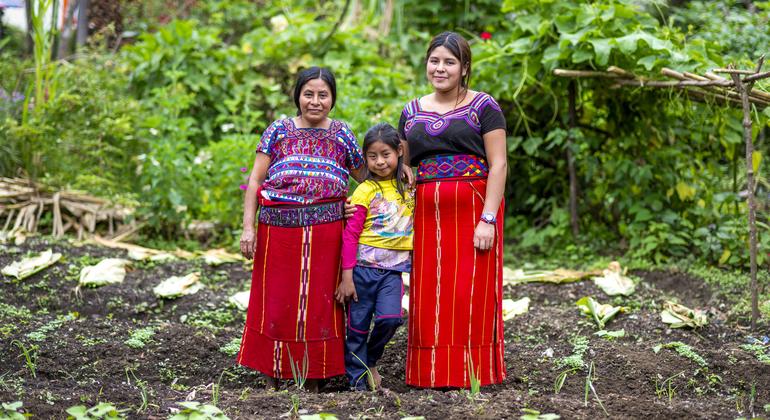Here’s the translation into American English:
A new report on the situation of Indigenous Peoples Worldwide reveals a concerning imbalance in global climate action. Although these groups make up only 6% of the world’s population, they are responsible for protecting 80% of the planet’s biodiversity, yet receive less than 1% of international funding aimed at combating climate change.
The study, published under the supervision of the United Nations, highlights the lack of urgency and equity in current climate initiatives. Renewable energy projects are often developed without the consent of these communities, and political decisions are made without considering their voices. This has resulted in Indigenous Peoples being excluded from climate solutions and displaced from their lands. Hindou Oumarou Ibrahim, chair of the United Nations Permanent Forum on Indigenous Issues, emphasizes that although they are the most affected by the climate crisis, they do not see themselves as victims but rather as “guardians of the natural world,” dedicated to maintaining the planet’s balance for future generations.
The report also underscores the need to recognize and value Indigenous knowledge, suggesting it should be regarded as scientific and technical knowledge rather than relegated to the “traditional” or folkloric. This knowledge, born from practices inherent to their relationships with ecosystems, has proven relevant; one example is the recovery of agricultural practices by a Quechua community in Peru, which has allowed them to adapt to climate changes and is now shared as a model with farmers in Costa Rica.
However, the report warns that many green solutions can be detrimental to Indigenous communities. Projects aimed at promoting biofuels, carbon offsetting, and mineral extraction for clean energy often create conflicts instead of recognizing these communities as vital partners in the fight against climate change.
The report also emphasizes the connection between climate change and the health of Indigenous communities. A chapter commissioned by the World Health Organization describes how climate impacts affect not only physical health but also the social, cultural, and spiritual life of these peoples. Indigenous women are particularly vulnerable and face challenges, including nutritional deficiencies due to the loss of access to traditional resources.
Despite such adversities, the resilience of Indigenous communities is revealed through the implementation of local adaptation strategies, many of which are driven by women and elders. These include the restoration of traditional diets and the adaptation of harvest calendars to new ecological cycles.
A critical aspect of the report is the exclusion of Indigenous communities from international climate funding, of which they receive less than 1%. There is an urgent need not only to increase this funding but also to transform its management, suggesting the creation of Indigenous-led mechanisms and the protection of their rights over data related to their territories. Without these fundamental changes, climate initiatives could perpetuate the historical exclusions and dispossessions that have affected Indigenous Peoples, thereby jeopardizing global environmental objectives.
Source: MiMub in Spanish
